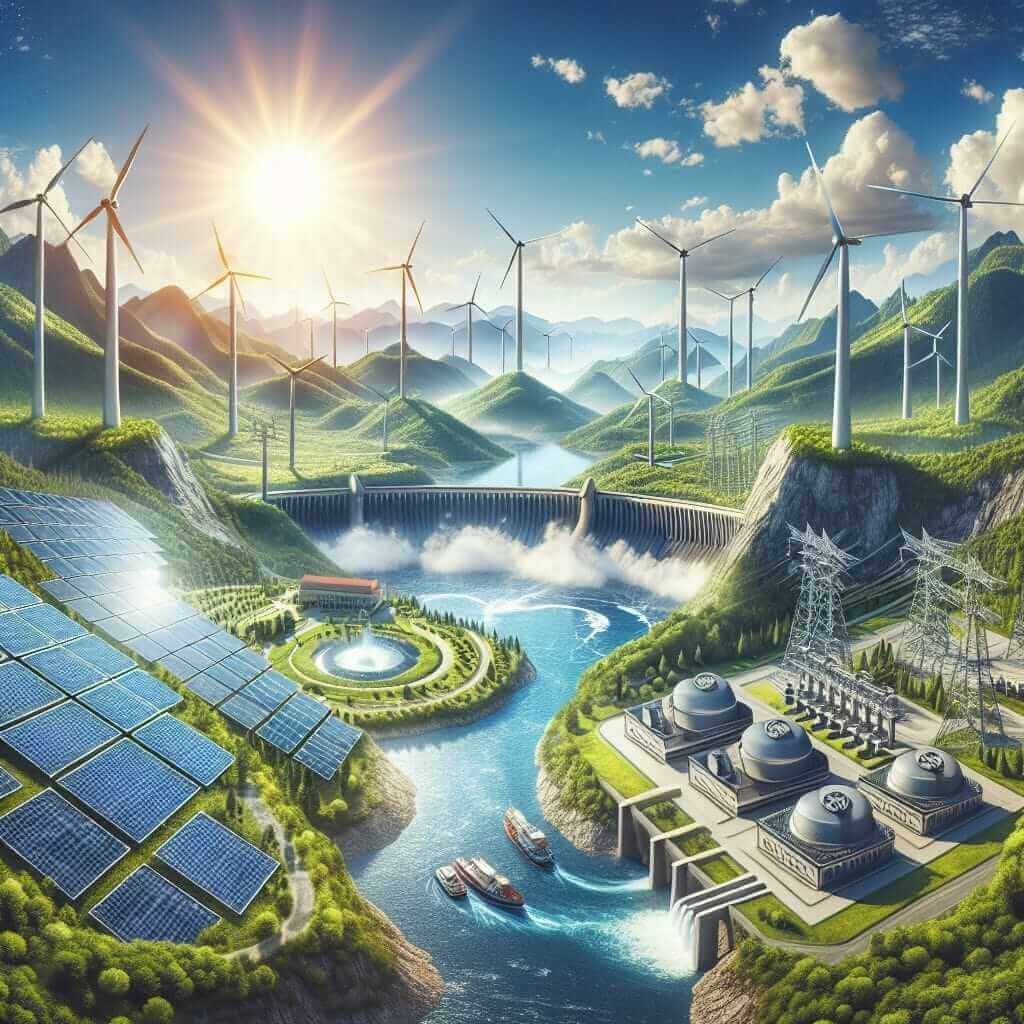“The impact of renewable energy investments on economic growth” is a common keyword phrase used by IELTS test-takers to find resources and practice writing tasks related to the economic implications of transitioning to cleaner energy sources. It represents a multifaceted issue often explored in IELTS Writing Task 2, requiring test-takers to analyze both the benefits and drawbacks of investing in renewable energy sources.
This keyword often appears in various forms, including:
- Renewable energy investments and economic growth
- Economic benefits of renewable energy
- How do renewable energy investments impact the economy?
Examining past IELTS essays reveals that this topic frequently features in the exam. Let’s explore some potential essay questions you might encounter:
1. Some people believe that investing in renewable energy sources is crucial for economic growth, while others argue that it hinders economic progress. Discuss both views and give your own opinion.
2. To what extent do you agree that government investment in renewable energy projects should take priority over other economic development initiatives?
3. Investing heavily in renewable energy sources is the only way to achieve sustainable economic growth. To what extent do you agree or disagree?
Analyzing a Sample Essay Question
For this guide, we will focus on the following question:
“Some people believe that investing in renewable energy sources is crucial for economic growth, while others argue that it hinders economic progress. Discuss both views and give your own opinion.”
This question requires you to discuss both sides of the argument: how renewable energy investments can stimulate economic growth and how they might pose challenges. You must present a balanced analysis before offering your own perspective.
Sample Band 8 Essay
Investing in renewable energy sources has become a topic of intense debate, with proponents highlighting its potential for economic growth and detractors arguing that it stifles economic progress. This essay will explore both sides of this argument before presenting my own perspective.
Advocates for renewable energy investments argue that they are essential for long-term economic growth. Firstly, transitioning to cleaner energy sources reduces reliance on finite fossil fuels, mitigating the economic volatility associated with fluctuating oil and gas prices. This stability can attract foreign investment and enhance energy security, fostering a more predictable and attractive business environment. Secondly, the development and implementation of renewable energy technologies create numerous job opportunities in manufacturing, installation, maintenance, and research and development sectors. This job creation can stimulate local economies, reduce unemployment, and boost overall economic activity.
However, critics contend that prioritizing renewable energy investments can hinder economic progress. They argue that the initial costs associated with transitioning to renewable energy infrastructure are prohibitively high, diverting resources from other crucial sectors like healthcare, education, and traditional industries. Moreover, they point out that the intermittent nature of some renewable energy sources, such as solar and wind power, requires significant investment in energy storage solutions and grid modernization, further straining national budgets.
While the initial costs of transitioning to renewable energy can be substantial, I firmly believe that the long-term economic benefits far outweigh the short-term challenges. The economic instability linked to fossil fuel dependency, coupled with the escalating environmental costs of inaction, makes a compelling case for accelerating the transition to a sustainable energy future. Governments should incentivize private sector investment in renewable energy research and development while implementing policies that gradually phase out fossil fuel subsidies. By embracing a balanced approach that addresses both the economic and environmental imperatives, we can pave the way for sustainable and inclusive economic growth.
(Word Count: 298 words)
Writing Tips
- Structure: Follow a clear structure: introduction, body paragraphs (discussing both sides), and a conclusion stating your opinion.
- Vocabulary: Utilize a wide range of vocabulary related to economics, energy, and sustainability. Avoid repetition and aim for precision in your word choice.
- Grammar: Use a variety of grammatical structures, including complex sentences and linking words, to demonstrate fluency and cohesion.
- Evidence: Support your claims with relevant examples and logical reasoning. You can refer to specific countries or industries that have benefited from renewable energy investments.
- Balance: Ensure you address both sides of the argument equally before presenting your own well-supported opinion.
Vocabulary Builder
- Mitigate (verb) /ˈmɪt.ɪ.ɡeɪt/: To make something less harmful, unpleasant, or bad.
- Volatility (noun) /ˌvɑː.ləˈtɪl.ə.t̬i/: The quality or state of being likely to change suddenly, especially by becoming worse.
- Intermittent (adjective) /ˌɪn.t̬ɚˈmɪt.ənt/: Occurring at irregular intervals; not continuous or steady.
- Subsidies (noun) /ˈsʌb.sə.diz/: A sum of money granted by the government or a public body to assist an industry or business so that the price of a commodity or service may remain low or competitive.
- Imperatives (noun) /ɪmˈper.ə.tɪvz/: An essential or urgent thing.

Conclusion
Mastering the art of writing about complex topics like the impact of renewable energy investments on economic growth is crucial for achieving a high score on the IELTS exam. By understanding the nuances of the topic, structuring your essay effectively, using a sophisticated vocabulary, and supporting your arguments with clear reasoning and examples, you can confidently approach any IELTS writing task related to this theme. Remember to practice writing essays on similar topics, such as the role of ethical investment in sustainable growth or the importance of sustainable development in economic policies, to further refine your skills.